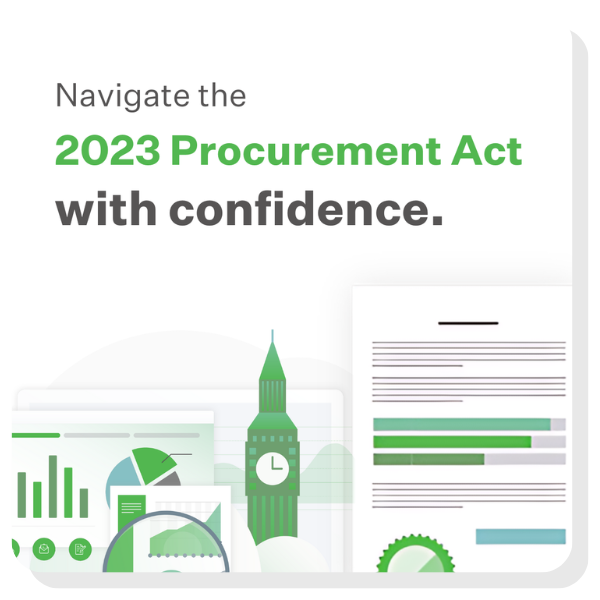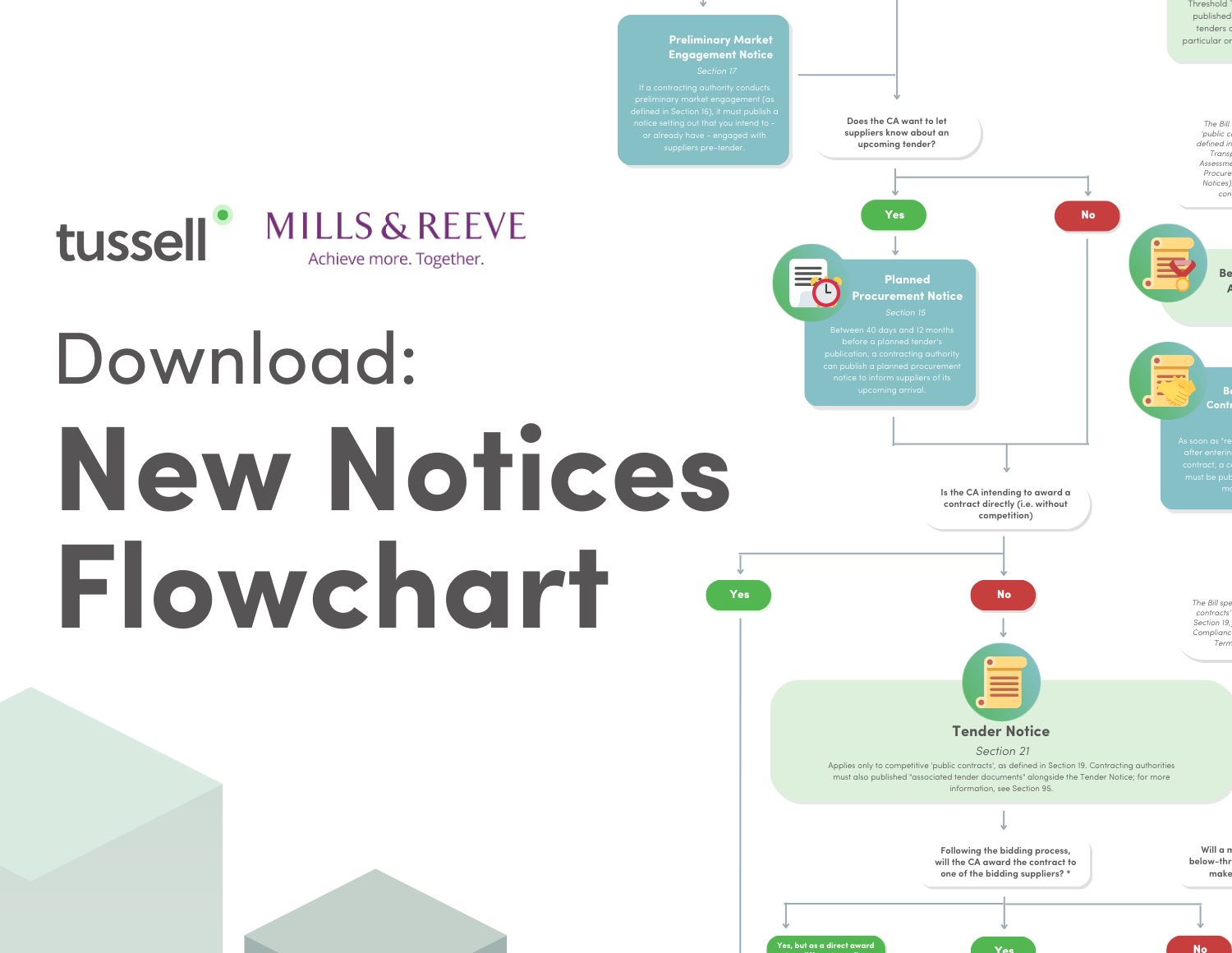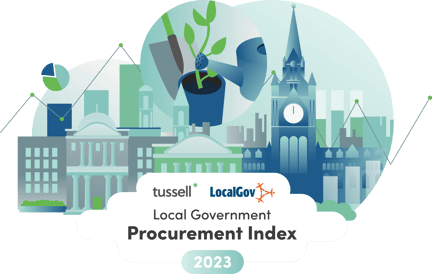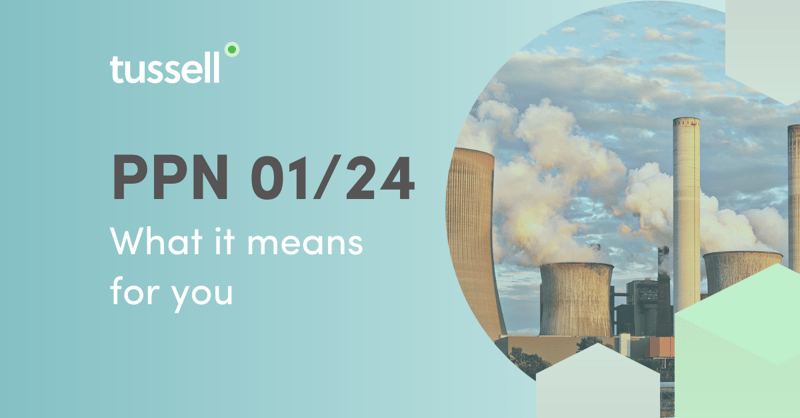In March 2024, the Cabinet Office published Procurement Policy Note (PPN) 02/24: Improving Transparency of AI use in Procurement.
This article summarises what this PPN means for public sector procurement teams and how it should inform your public sector procurement strategy.
*
In the 2024 Spring Budget, the government announced large investments into AI across both Central Government and the NHS.
Data from Tussell shows that Local Government are also ramping up their procurement of AI solutions and tools.
Amidst this flurry of AI investment and uptake across both the private and public sectors, the Cabinet Office's new Procurement Policy Note (PPN) signals to contracting authorities the inevitable growth in the use of AI technologies by suppliers during the procurement process, and what the potential consequences of this might be.
The PPN also provides guidance for contracting authorities if and when they look to procure AI-based products and services themselves.
💡 What changes does PPN 02/24 introduce?
PPN 02/24 introduces new guidance and instructions for in-scope commercial teams to help with mitigating potential AI risks in the procurement process.
Procurement teams are advised to apply the following precautions in a proportionate manner as and when necessary:
-
Contracting authorities may ask suppliers to disclose if AI was used in the creation of a written tender.
-
Contracting authorities should put in place controls to ensure bidders do not enter confidential contracting authority information into Large Language Models (LLM). They should also ensure this data is not used to train AI.
-
In instances where AI tools have been used to generate tender responses, proportional due diligence may be required to ensure a supplier genuinely has capacity and capability to fulfil the contract requirements.
-
Procurement teams are advised that content produced by LLMs may be misleading or untrue. As such, suppliers should be asked for supporting documentation and/or clarifications to ensure the accuracy of AI-written tenders.
-
Automation and AI is set to speed up the bid-writing process. As such, procurement teams should also prepare for an increase in bids.
-
Procurement teams should recognise that going forward more time may be required to (a) process the expected increase in bids and (b) enact the increased level of due-diligence that may be required in processing AI-written tenders.
-
Depending on the contract in question, procurement teams may bring in relevant experts to advise on AI questions and to help mitigate risks where relevant.
For procurements that may relate to national security concerns, commercial teams should seek information and guidance from Assurance and Security teams to ensure that national security risks are mitigated.
AI is becoming an increasingly common tool in all companies (not just those who deliver AI or technology services). Commercial teams may therefore require suppliers to declare whether AI will be used in any aspect of service delivery.
Procurement teams should ensure that AI is restricted to use cases where the risks can be effectively understood and managed.
Additionally, the Cabinet Office stressed that decisions should be made with the support of AI but not with a reliance on it. Procurement teams should recognise that content created using LLMs may be misleading or untrue.
Uncover the fastest-growing AI and technology companies in the UK public sector
📃 What new questions can contracting authorities ask suppliers?
The Cabinet Office has laid several example questions which may be added to the Invitation to Tender.
.png?width=1920&height=1080&name=Tussell%20-%20Procurement%20Notices%20Publication%20Matrix%20-%202024_02_28%20(3).png)
These questions should not be scored or taken into account in the procurement decision and the results should be used for informational uses only.
Contracting Authorities may, however, ask further relevant questions about a supplier’s use of AI. Whether and how these questions will be scored should be laid out in the procurement documents.
Read the full PPN for a full list of example questions.
❓ Why is PPN 02/24 being introduced?
According to Tussell's market intelligence platform, the total value of new AI-related contracts awarded by the public sector has increased by 634% between Q1 2023 and Q1 2024.
-1.png?width=1920&height=1080&name=Tussell%20-%20Procurement%20Notices%20Publication%20Matrix%20-%202024_02_28%20(2)-1.png)
This - coupled with the increased access bidding teams have to AI and Large Language Models - poses new risks to contracting authorities and procurement teams.
The new PPN seeks to minimise these risks by keeping commercial teams vigilant on the potential threats posed by incorrect implementation of the new technologies.
🔮 What next?
Read the full PPN for a more detailed breakdown and to uncover what the new policy note means for you.
Procurement teams who need additional guidance should consult the following:
-
GDS and OAI’s guidance: Is AI the right solution for you?
-
The Cabinet Office and OAI’s guidance: guidelines for AI procurement
*
To read the latest Procurement Policy Note for yourself, click here.
Behind on your PPN knowledge? Find all of our comprehensive PPN explainers below:
- PPN 01/24: Carbon Reduction Contract Schedules
- PPN 10/23: Taking account of a bidder's approach to payment in the procurement of major contracts
- PPN 08/23: Using Standard Contracts
- PPN 07/23: Government Security Classifications Policy 2023
- PPN 05/23: Implementing new Free Trade Agreements
- PPN 01/23: Requirements to publish on Contracts Finder
- PPN 08/21: Taking account of a bidder's approach to payment in the procurement of major government contracts
- PPN 06/21: Taking account of Carbon Reduction Plans in the procurement of major government contracts
- PPN 05/21: National Procurement Policy Statement



![[Gov] New Nav Bar, Solutions - DSIT citation v1, Rounded](https://www.tussell.com/hubfs/%5BGov%5D%20New%20Nav%20Bar%2c%20Solutions%20-%20DSIT%20citation%20v1%2c%20Rounded.png)
![New Nav Bar - New Tag [Gov]](https://www.tussell.com/hubfs/New%20Nav%20Bar%20-%20New%20Tag%20%5BGov%5D.png)

![[Gov] New Nav Bar, Insights - SS Report v1, Rounded](https://www.tussell.com/hubfs/%5BGov%5D%20New%20Nav%20Bar%2c%20Insights%20-%20SS%20Report%20v1%2c%20Rounded.png)











